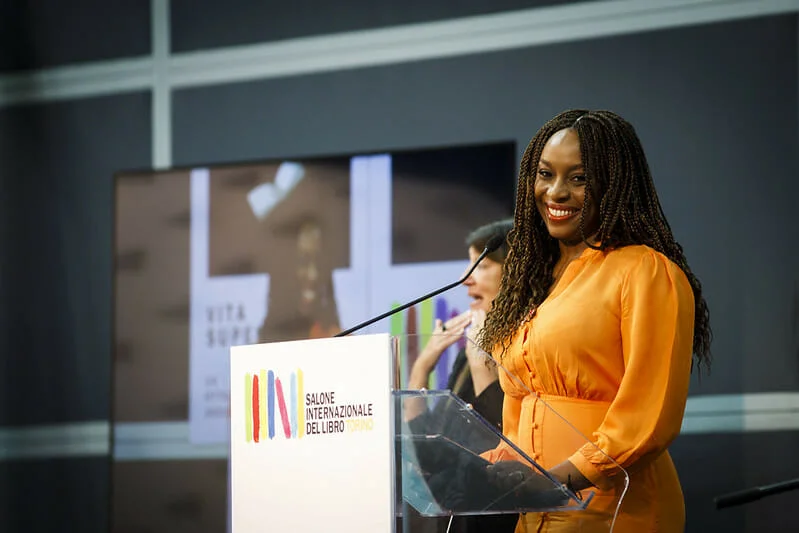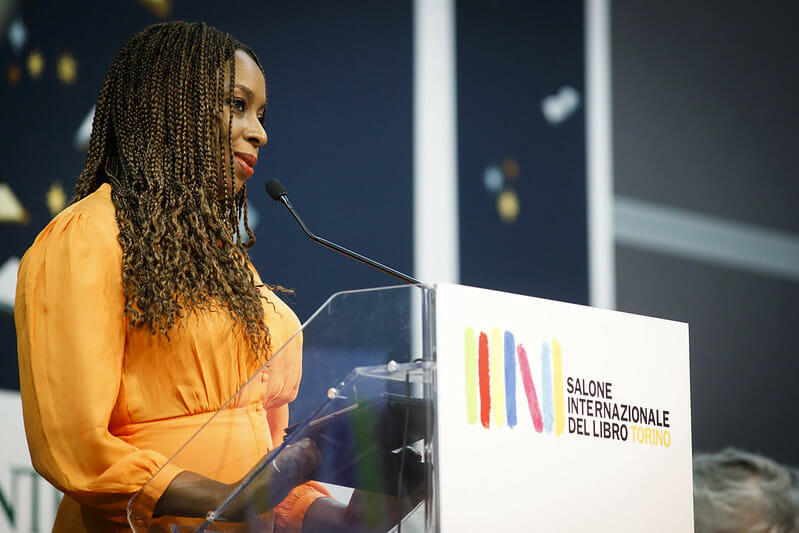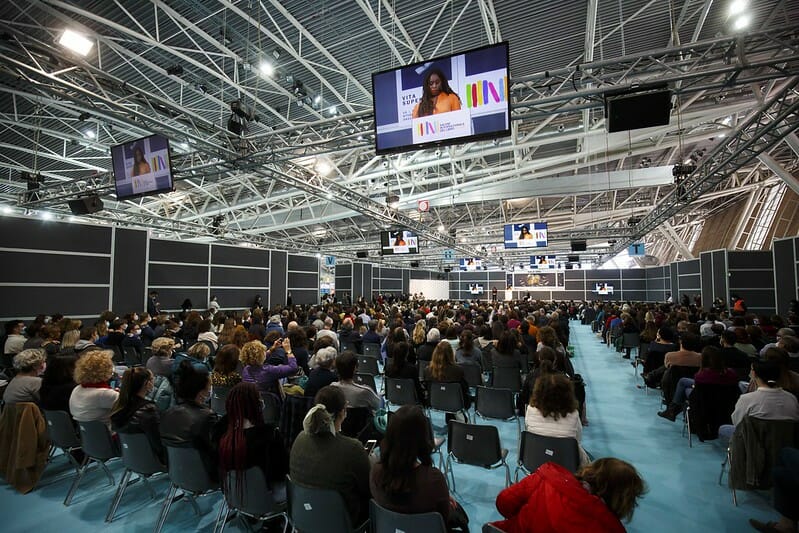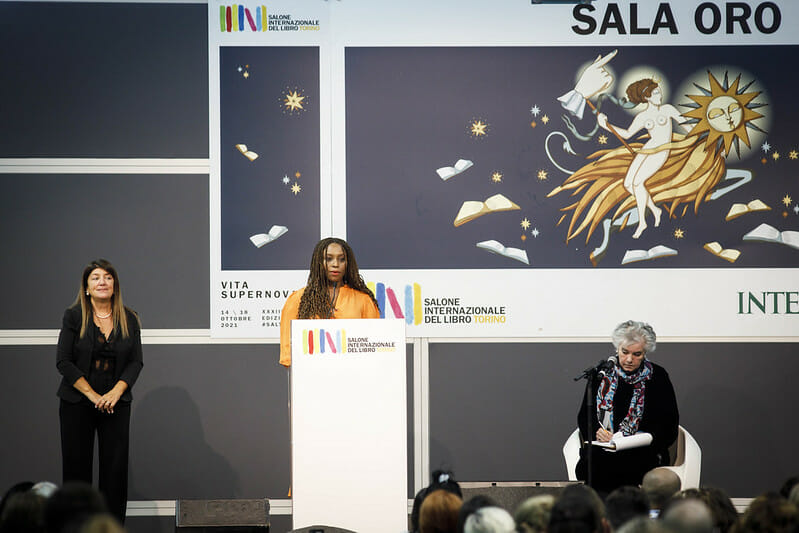
The theme of the 33rd Turin International Book Fair is a supernova, the eruption of a star that reflects an explosion of ideas, commented Nigerian novelist Chimamanda Ngozi Adichie at a presentation given at the opening of the fair on Thursday, 14th October 2021. The name of this year’s fair is both a homage to Italian poet Dante Alighieri on the 700th anniversary of his death and a reference to the stars.
The Salone Internazionale del Libro di Torino is Italy’s largest book trade fair. After a respite caused by the pandemic, the fair returned last week and this weekend true-to-form, pulling in hundreds of thousands of visitors to hundreds of publishers’ and bookshops’ stands.

Adichie is the author of the novels Purple Hibiscus (2003), Half of a Yellow Sun (2006), and Americanah (2013). Her book-length essay, We Should All Be Feminists (2014), was adapted from Adichie’s award-winning TED talk of the same name. She cites her original inspiration as coming from Nigerian writer Chinua Achebe after she had read his 1958 novel, Things Fall Apart, when she was ten. She also claims influence from Buchi Emecheta.
In-between two worlds
Her father was a university professor, her mother a higher education registrar, and the family lost both sets of grandparents in the 1969-70 Nigerian Civil War. After moving to the US, Adichie studied at a variety of universities, including John Hopkins, Princeton, and Yale, finishing a Master’s in creative writing at the former. Between 2002-2018 she was either nominated for or won no less than 37 major literary awards, including a MacArthur Foundation Genius Grant, as well as the National Book Critics Circle Award.
A mildly outspoken voice on many issues of contemporary socio-economics, she claims to be indifferent to social media sites such as Facebook. However, she says that “people are less familiar with one another because we are unfamiliar with the stories of one another. I dream of a world with more familiarity. I dream of a world in which we resist the danger of seeing only what we want to see.”
In a post-COVID world, Chimamanda dreams about a generation that cares less about what is right and what is wrong, and “more about what is true and what is false.”
Literature and critical thinking
Like many people of her generation, what Adichie is most concerned about are themes such as the environment, gender, race inequality, and artificial intelligence. However, she finds herself “the most worried about the loss of critical thinking and consequently the death of empathy. If you are able to think critically, you are able to see other human beings. As Colum McCann said, «To read is to be alive in a body that is not your own.» Empathy and critical thinking as starting points would radically change the way that we deal with the big problems.”

“I have my biases much as everyone else does. I am a fiction writer. A narrator. I have come to think of literature as my religion. Human stories are my consolation. I read to be less alone in the world. It is literature that enables real human empathy and human connection.”
Involvement in civil rights was one function of literature in ancient Greece, she says, and it is true that Dostoyevsky or Turgenev wouldn’t have thought about a woman such as herself as their typical reader, but they speak to her too.
“Knowledge is continually to be revised. Literature teaches us that there is so much that we don’t know and so much we have yet to know. I believe in the importance of the dream. I write fiction: I think it takes a leap of faith to do that. The pandemic taught us that the only thing we may be sure of in our life is uncertainty. Everything could happen. So we should have confidence in our dreams because you never know.”

Adichie ended her speech with a few lines of the poem Song by Louise Glück:
Ah, he says, you are dreaming again
And I say then I’m glad I dream
the fire is still alive.
Christian Jennings contributes to this article.



